Deck 18: Functional Derivatives of Carboxylic Acids
Question
Question
Question
Question
Question
Question
Question
Question
Question
Question
Question
Question
Question
Question
Question
Question
Question
Question
Question
Question
Question
Question
Question
Question
Question
Question
Question
Question
Question
Question
Question
Question
Question
Question
Question
Question
Question
Question
Question
Question
Question
Question
Question
Question
Question
Question
Question
Question
Question
Question
Question
Question
Question
Question
Question
Question
Question
Question
Question
Question
Question
Question
Question
Question
Question
Question
Question
Question
Question
Question
Question
Question
Question
Question
Question
Question
Question
Question
Question
Question

Unlock Deck
Sign up to unlock the cards in this deck!
Unlock Deck
Unlock Deck
1/112
Play
Full screen (f)
Deck 18: Functional Derivatives of Carboxylic Acids
1
What is the IUPAC name of the following compound? 
A)butyl isopropanoate
B)isopropyl pentanoate
C)pentanoyl isopropane
D)isopropyloxybutanal

A)butyl isopropanoate
B)isopropyl pentanoate
C)pentanoyl isopropane
D)isopropyloxybutanal
isopropyl pentanoate
2
What is the IUPAC name of the following compound? 
A)dimethylamino-3-phenylpropanoic acid
B)N,N-dimethyl 2-phenylethyl amide
C)N,N-dimethyl 3-phenylpropanamide
D)dimethyl 2-phenylpropanoylamine

A)dimethylamino-3-phenylpropanoic acid
B)N,N-dimethyl 2-phenylethyl amide
C)N,N-dimethyl 3-phenylpropanamide
D)dimethyl 2-phenylpropanoylamine
N,N-dimethyl 3-phenylpropanamide
3
What is the correct assignment of the functional groups in the following compounds? 
A)1 = amide; 2 = imide; 3 = nitrile
B)1 = lactam; 2 = amide; 3 = imide
C)1 = lactam; 2 = imide; 3 = amide
D)1 = imide; 2 = amide; 3 = lactam

A)1 = amide; 2 = imide; 3 = nitrile
B)1 = lactam; 2 = amide; 3 = imide
C)1 = lactam; 2 = imide; 3 = amide
D)1 = imide; 2 = amide; 3 = lactam
1 = lactam; 2 = amide; 3 = imide
4
What is the correct assignment of the names of the following substituted benzenes? 
A)1 = benzonitrile; 2 = benzyl amine; 3 = benzyl alcohol
B)1 = benzyl amine; 2 = benzonitrile; 3 = benzamide
C)1 = benzamide; 2 = benzonitrile; 3 = benzoic acid
D)1 = benzonitrile; 2 = benzamide; 3 = benzoic acid

A)1 = benzonitrile; 2 = benzyl amine; 3 = benzyl alcohol
B)1 = benzyl amine; 2 = benzonitrile; 3 = benzamide
C)1 = benzamide; 2 = benzonitrile; 3 = benzoic acid
D)1 = benzonitrile; 2 = benzamide; 3 = benzoic acid

Unlock Deck
Unlock for access to all 112 flashcards in this deck.
Unlock Deck
k this deck
5
Which of the following best describes the key mechanistic steps in the reaction of an acid chloride and an alcohol to form an ester?
A)elimination followed by addition
B)addition followed by decarboxylation
C)addition followed by elimination
D)substitution followed by addition
A)elimination followed by addition
B)addition followed by decarboxylation
C)addition followed by elimination
D)substitution followed by addition

Unlock Deck
Unlock for access to all 112 flashcards in this deck.
Unlock Deck
k this deck
6
Which of the following compounds is a 3 amide? 
A)1
B)2
C)3
D)4

A)1
B)2
C)3
D)4

Unlock Deck
Unlock for access to all 112 flashcards in this deck.
Unlock Deck
k this deck
7
Which of the following can be made by acid-promoted hydrolysis of a nitrile?
1)an acid
2)an alcohol
3)an imine
4)an imide
A)only 1
B)only 1 and 2
C)only 2 and 3
D)only 4
1)an acid
2)an alcohol
3)an imine
4)an imide
A)only 1
B)only 1 and 2
C)only 2 and 3
D)only 4

Unlock Deck
Unlock for access to all 112 flashcards in this deck.
Unlock Deck
k this deck
8
Which of the following is the correct order of decreasing acid strength of the following compounds (more acidic > less acidic)? 
A)1 > 2 > 3
B)2 > 3 > 1
C)1 > 3 > 2
D)3 > 2 > 1

A)1 > 2 > 3
B)2 > 3 > 1
C)1 > 3 > 2
D)3 > 2 > 1

Unlock Deck
Unlock for access to all 112 flashcards in this deck.
Unlock Deck
k this deck
9
Which of the following is the correct order of decreasing leaving group ability in nucleophilic acyl substitutions (better leaving group > worse leaving group)?
A)Cl- > CH3COO- > CH3O-
B)CH3COO- > CH3O- > Cl-
C)Cl- > CH3O- > CH3COO-
D)CH3O- > Cl- > CH3COO-
A)Cl- > CH3COO- > CH3O-
B)CH3COO- > CH3O- > Cl-
C)Cl- > CH3O- > CH3COO-
D)CH3O- > Cl- > CH3COO-

Unlock Deck
Unlock for access to all 112 flashcards in this deck.
Unlock Deck
k this deck
10
Which of the following is the correct order of decreasing reactivity in hydrolysis reactions (more reactive > less reactive)?
A)anhydrides > amides > acid chlorides
B)amides > acid chlorides > anhydrides
C)anhydrides > acid chlorides > amides
D)acid chlorides > anhydrides > amides
A)anhydrides > amides > acid chlorides
B)amides > acid chlorides > anhydrides
C)anhydrides > acid chlorides > amides
D)acid chlorides > anhydrides > amides

Unlock Deck
Unlock for access to all 112 flashcards in this deck.
Unlock Deck
k this deck
11
Which of the following is the correct order of decreasing leaving group ability in nucleophilic acyl substitutions (better leaving group > worse leaving group)?
A)Cl- > NH2- > CH3O-
B)NH2- > CH3O- > Cl-
C)Cl-> CH3O- > NH2-
D)CH3O- > Cl- > NH2-
A)Cl- > NH2- > CH3O-
B)NH2- > CH3O- > Cl-
C)Cl-> CH3O- > NH2-
D)CH3O- > Cl- > NH2-

Unlock Deck
Unlock for access to all 112 flashcards in this deck.
Unlock Deck
k this deck
12
What of the following is the correct assignment of the classes of the following compounds? 
A)1 = lactone; 2 = ester; 3 = amide
B)1 = ester; 2 = ester; 3 = imide
C)1 = ester; 2 = imide; 3 = amide
D)1 = lactone; 2 = anhydride; 3 = imide

A)1 = lactone; 2 = ester; 3 = amide
B)1 = ester; 2 = ester; 3 = imide
C)1 = ester; 2 = imide; 3 = amide
D)1 = lactone; 2 = anhydride; 3 = imide

Unlock Deck
Unlock for access to all 112 flashcards in this deck.
Unlock Deck
k this deck
13
Which of the following is the correct order of decreasing acid strength of the following compounds (more acidic > less acidic)? 
A)1 > 2 > 3
B)2 > 3 > 1
C)1 > 3 > 2
D)3 > 2 > 1

A)1 > 2 > 3
B)2 > 3 > 1
C)1 > 3 > 2
D)3 > 2 > 1

Unlock Deck
Unlock for access to all 112 flashcards in this deck.
Unlock Deck
k this deck
14
What is the IUPAC name of the following compound? 
A)(E)-N-methyl 3-methyl-3-pentenamide
B)(Z)-N-methyl 3-methyl-3-pentenamide
C)(E)-1-methylamino-3-methyl-3-pentenal
D)(Z)-1-methylamino-3-methyl-3-pentenal

A)(E)-N-methyl 3-methyl-3-pentenamide
B)(Z)-N-methyl 3-methyl-3-pentenamide
C)(E)-1-methylamino-3-methyl-3-pentenal
D)(Z)-1-methylamino-3-methyl-3-pentenal

Unlock Deck
Unlock for access to all 112 flashcards in this deck.
Unlock Deck
k this deck
15
What is the correct assignment of the functional groups in the following compounds? 
A)1 = amide; 2 = ester; 3 = nitrile
B)1 = nitrile; 2 = ester; 3 = imide
C)1 = nitrile; 2 = ester; 3 = amide
D)1 = amide; 2 = carboxylic acid; 3 = imide

A)1 = amide; 2 = ester; 3 = nitrile
B)1 = nitrile; 2 = ester; 3 = imide
C)1 = nitrile; 2 = ester; 3 = amide
D)1 = amide; 2 = carboxylic acid; 3 = imide

Unlock Deck
Unlock for access to all 112 flashcards in this deck.
Unlock Deck
k this deck
16
Which of the following statements is not true in relation to the hydrolysis of esters?
A)Hydrolysis of esters under acid conditions requires only a catalytic amount of a strong acid
B)Hydrolysis of esters under basic conditions requires a stoichiometric amount of hydroxide
C)Under acidic conditions for hydrolysis of esters protonation of the ester increases its electrophilicity
D)Under basic conditions for hydrolysis of esters deprotonation of the ester increases its nucleophilicity
A)Hydrolysis of esters under acid conditions requires only a catalytic amount of a strong acid
B)Hydrolysis of esters under basic conditions requires a stoichiometric amount of hydroxide
C)Under acidic conditions for hydrolysis of esters protonation of the ester increases its electrophilicity
D)Under basic conditions for hydrolysis of esters deprotonation of the ester increases its nucleophilicity

Unlock Deck
Unlock for access to all 112 flashcards in this deck.
Unlock Deck
k this deck
17
Which of the following is the correct order of decreasing reactivity in hydrolysis reactions (more reactive > less reactive)?
A)esters > amides > acid chlorides
B)amides > acid chlorides > esters
C)acid chlorides > esters > amides
D)esters > acid chlorides > amides
A)esters > amides > acid chlorides
B)amides > acid chlorides > esters
C)acid chlorides > esters > amides
D)esters > acid chlorides > amides

Unlock Deck
Unlock for access to all 112 flashcards in this deck.
Unlock Deck
k this deck
18
Which of the following best describes the key mechanistic steps in the reaction of an anhydride and an amine to form an amide?
A)addition followed by elimination
B)elimination followed by addition
C)substitution followed by addition
D)addition followed by decarboxylation
A)addition followed by elimination
B)elimination followed by addition
C)substitution followed by addition
D)addition followed by decarboxylation

Unlock Deck
Unlock for access to all 112 flashcards in this deck.
Unlock Deck
k this deck
19
What is the IUPAC name of the following compound? 
A)ethyl (R)-3-methylpentanoate
B)ethyl (S)-3-methylpentanoate
C)(R)-2-methylbutyl ethanoate
D)(S)-2-methylbutyl ethanoate

A)ethyl (R)-3-methylpentanoate
B)ethyl (S)-3-methylpentanoate
C)(R)-2-methylbutyl ethanoate
D)(S)-2-methylbutyl ethanoate

Unlock Deck
Unlock for access to all 112 flashcards in this deck.
Unlock Deck
k this deck
20
Which of the following compounds is a 2 amide? 
A)1
B)2
C)3
D)4

A)1
B)2
C)3
D)4

Unlock Deck
Unlock for access to all 112 flashcards in this deck.
Unlock Deck
k this deck
21
What is the major organic product obtained from the following reaction? 
A)1
B)2
C)3
D)4

A)1
B)2
C)3
D)4

Unlock Deck
Unlock for access to all 112 flashcards in this deck.
Unlock Deck
k this deck
22
What is the major organic product obtained from the following reaction? 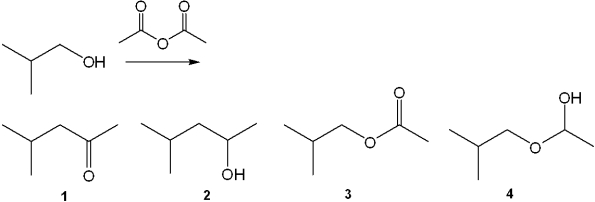
A)1
B)2
C)3
D)4

A)1
B)2
C)3
D)4

Unlock Deck
Unlock for access to all 112 flashcards in this deck.
Unlock Deck
k this deck
23
What is the major organic product obtained from the following reaction? 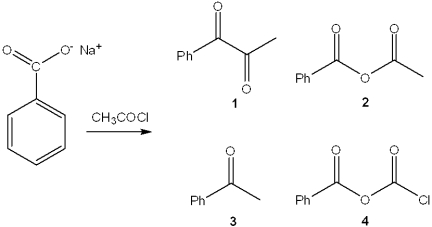
A)1
B)2
C)3
D)4

A)1
B)2
C)3
D)4

Unlock Deck
Unlock for access to all 112 flashcards in this deck.
Unlock Deck
k this deck
24
What is the major organic product obtained from the following reaction? 
A)1
B)2
C)3
D)4

A)1
B)2
C)3
D)4

Unlock Deck
Unlock for access to all 112 flashcards in this deck.
Unlock Deck
k this deck
25
What is the major organic product obtained from the following reaction? 
A)1
B)2
C)3
D)4

A)1
B)2
C)3
D)4

Unlock Deck
Unlock for access to all 112 flashcards in this deck.
Unlock Deck
k this deck
26
What is the major organic product obtained from the following reaction? 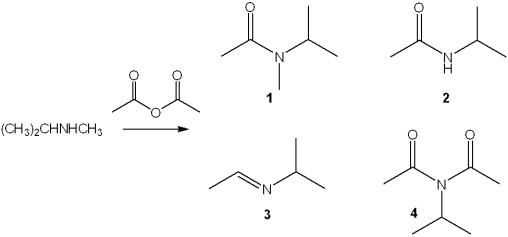
A)1
B)2
C)3
D)4

A)1
B)2
C)3
D)4

Unlock Deck
Unlock for access to all 112 flashcards in this deck.
Unlock Deck
k this deck
27
What is the major organic product obtained from the following reaction? 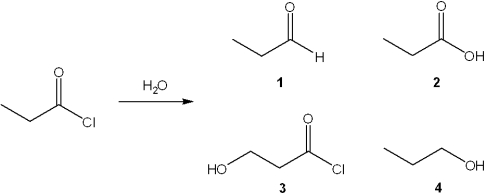
A)1
B)2
C)3
D)4

A)1
B)2
C)3
D)4

Unlock Deck
Unlock for access to all 112 flashcards in this deck.
Unlock Deck
k this deck
28
What is the major organic product obtained from the following reaction? 
A)1
B)2
C)3
D)4

A)1
B)2
C)3
D)4

Unlock Deck
Unlock for access to all 112 flashcards in this deck.
Unlock Deck
k this deck
29
What is the major organic product obtained from the following reaction? 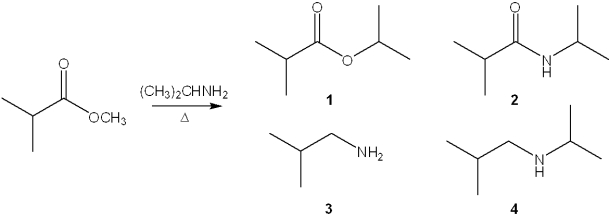
A)1
B)2
C)3
D)4

A)1
B)2
C)3
D)4

Unlock Deck
Unlock for access to all 112 flashcards in this deck.
Unlock Deck
k this deck
30
What is the major organic product obtained from the following reaction? 
A)1
B)2
C)3
D)4

A)1
B)2
C)3
D)4

Unlock Deck
Unlock for access to all 112 flashcards in this deck.
Unlock Deck
k this deck
31
What is the major organic product obtained from the following reaction? 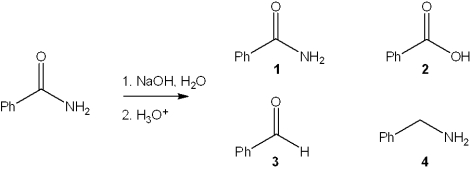
A)1
B)2
C)3
D)4

A)1
B)2
C)3
D)4

Unlock Deck
Unlock for access to all 112 flashcards in this deck.
Unlock Deck
k this deck
32
What is the major organic product obtained from the following reaction? 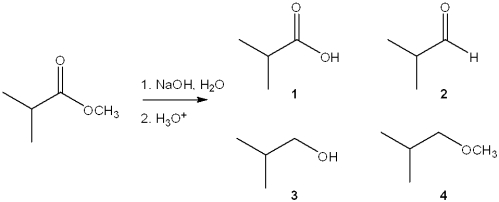
A)1
B)2
C)3
D)4

A)1
B)2
C)3
D)4

Unlock Deck
Unlock for access to all 112 flashcards in this deck.
Unlock Deck
k this deck
33
What is the major organic product obtained from the following reaction? 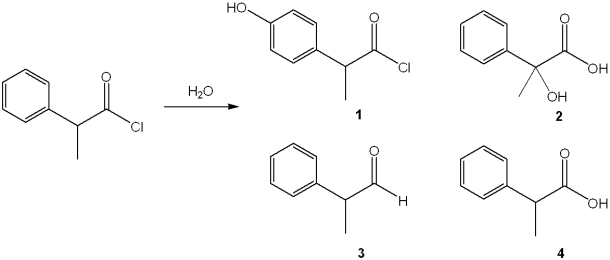
A)1
B)2
C)3
D)4

A)1
B)2
C)3
D)4

Unlock Deck
Unlock for access to all 112 flashcards in this deck.
Unlock Deck
k this deck
34
What is the major organic product obtained from the following reaction? 
A)1
B)2
C)3
D)4

A)1
B)2
C)3
D)4

Unlock Deck
Unlock for access to all 112 flashcards in this deck.
Unlock Deck
k this deck
35
What is the major organic product obtained from the following reaction? 
A)1
B)2
C)3
D)4

A)1
B)2
C)3
D)4

Unlock Deck
Unlock for access to all 112 flashcards in this deck.
Unlock Deck
k this deck
36
What is the major organic product obtained from the following reaction? 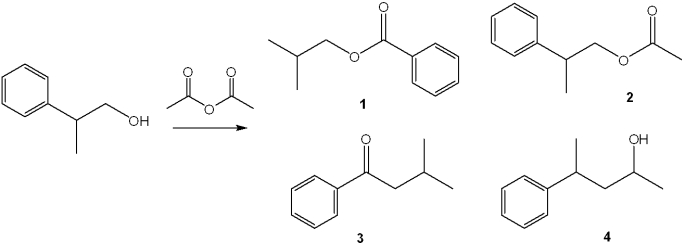
A)1
B)2
C)3
D)4

A)1
B)2
C)3
D)4

Unlock Deck
Unlock for access to all 112 flashcards in this deck.
Unlock Deck
k this deck
37
What is the major organic product obtained from the following reaction? 
A)1
B)2
C)3
D)4

A)1
B)2
C)3
D)4

Unlock Deck
Unlock for access to all 112 flashcards in this deck.
Unlock Deck
k this deck
38
What is the major organic product obtained from the following reaction? 
A)1
B)2
C)3
D)4

A)1
B)2
C)3
D)4

Unlock Deck
Unlock for access to all 112 flashcards in this deck.
Unlock Deck
k this deck
39
What is the major organic product obtained from the following reaction? 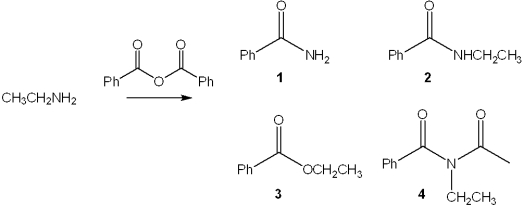
A)1
B)2
C)3
D)4

A)1
B)2
C)3
D)4

Unlock Deck
Unlock for access to all 112 flashcards in this deck.
Unlock Deck
k this deck
40
What is the major organic product obtained from the following reaction? 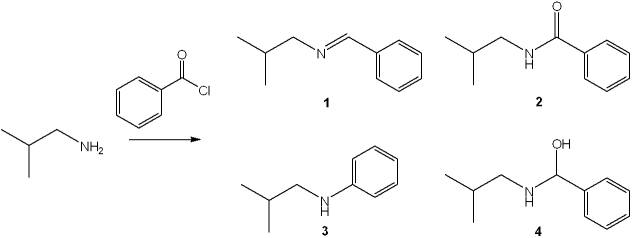
A)1
B)2
C)3
D)4

A)1
B)2
C)3
D)4

Unlock Deck
Unlock for access to all 112 flashcards in this deck.
Unlock Deck
k this deck
41
What is the major organic product obtained from the following reaction? 
A)1
B)2
C)3
D)4

A)1
B)2
C)3
D)4

Unlock Deck
Unlock for access to all 112 flashcards in this deck.
Unlock Deck
k this deck
42
What is the major organic product obtained from the following reaction? 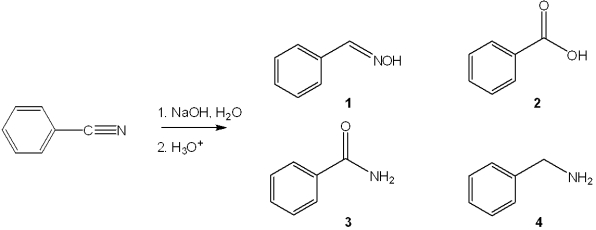
A)1
B)2
C)3
D)4

A)1
B)2
C)3
D)4

Unlock Deck
Unlock for access to all 112 flashcards in this deck.
Unlock Deck
k this deck
43
What is the major organic product of the following sequence of reactions? 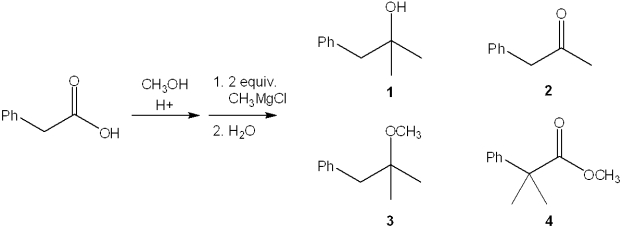
A)1
B)2
C)3
D)4

A)1
B)2
C)3
D)4

Unlock Deck
Unlock for access to all 112 flashcards in this deck.
Unlock Deck
k this deck
44
What is the major organic product obtained from the following reaction? 
A)1
B)2
C)3
D)4

A)1
B)2
C)3
D)4

Unlock Deck
Unlock for access to all 112 flashcards in this deck.
Unlock Deck
k this deck
45
What is the major organic product obtained from the following reaction? 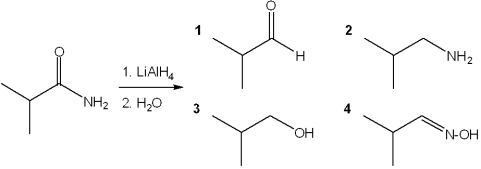
A)1
B)2
C)3
D)4

A)1
B)2
C)3
D)4

Unlock Deck
Unlock for access to all 112 flashcards in this deck.
Unlock Deck
k this deck
46
What is the best choice of reagent(s) to achieve the following transformation? 
A)H2O
B)NaOH, H2O
C)1. LiAlH4; 2. H3O+
D)H2SO4

A)H2O
B)NaOH, H2O
C)1. LiAlH4; 2. H3O+
D)H2SO4

Unlock Deck
Unlock for access to all 112 flashcards in this deck.
Unlock Deck
k this deck
47
What is the best choice of reagent to achieve the following transformation? 
A)CH3MgBr
B)CH3Li
C)CH3I
D)(CH3)2CuLi

A)CH3MgBr
B)CH3Li
C)CH3I
D)(CH3)2CuLi

Unlock Deck
Unlock for access to all 112 flashcards in this deck.
Unlock Deck
k this deck
48
What is the major organic product obtained from the following reaction? 
A)1
B)2
C)3
D)4

A)1
B)2
C)3
D)4

Unlock Deck
Unlock for access to all 112 flashcards in this deck.
Unlock Deck
k this deck
49
What is the major organic product obtained from the following reaction? 
A)1
B)2
C)3
D)4

A)1
B)2
C)3
D)4

Unlock Deck
Unlock for access to all 112 flashcards in this deck.
Unlock Deck
k this deck
50
What is the major organic product obtained from the following reaction? 
A)1
B)2
C)3
D)4

A)1
B)2
C)3
D)4

Unlock Deck
Unlock for access to all 112 flashcards in this deck.
Unlock Deck
k this deck
51
What is the major organic product obtained from the following reaction? 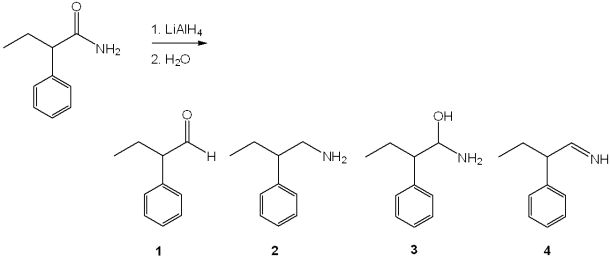
A)1
B)2
C)3
D)4

A)1
B)2
C)3
D)4

Unlock Deck
Unlock for access to all 112 flashcards in this deck.
Unlock Deck
k this deck
52
What is the major organic product obtained from the following reaction? 
A)1
B)2
C)3
D)4

A)1
B)2
C)3
D)4

Unlock Deck
Unlock for access to all 112 flashcards in this deck.
Unlock Deck
k this deck
53
What is the major organic product obtained from the following reaction? 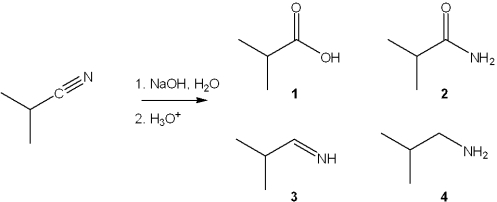
A)1
B)2
C)3
D)4

A)1
B)2
C)3
D)4

Unlock Deck
Unlock for access to all 112 flashcards in this deck.
Unlock Deck
k this deck
54
What is the major organic product obtained from the following reaction? 
A)1
B)2
C)3
D)4

A)1
B)2
C)3
D)4

Unlock Deck
Unlock for access to all 112 flashcards in this deck.
Unlock Deck
k this deck
55
What is the major organic product of the following sequence of reactions? 
A)1
B)2
C)3
D)4

A)1
B)2
C)3
D)4

Unlock Deck
Unlock for access to all 112 flashcards in this deck.
Unlock Deck
k this deck
56
What is the major organic product obtained from the following reaction? 
A)1
B)2
C)3
D)4

A)1
B)2
C)3
D)4

Unlock Deck
Unlock for access to all 112 flashcards in this deck.
Unlock Deck
k this deck
57
What is the major organic product obtained from the following reaction? 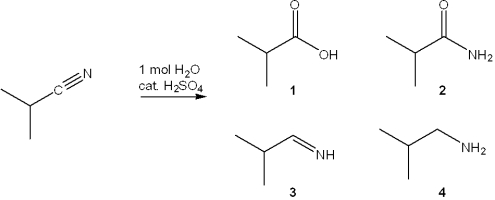
A)1
B)2
C)3
D)4

A)1
B)2
C)3
D)4

Unlock Deck
Unlock for access to all 112 flashcards in this deck.
Unlock Deck
k this deck
58
What is the major organic product obtained from the following reaction? 
A)1
B)2
C)3
D)4

A)1
B)2
C)3
D)4

Unlock Deck
Unlock for access to all 112 flashcards in this deck.
Unlock Deck
k this deck
59
What is the major organic product obtained from the following reaction? 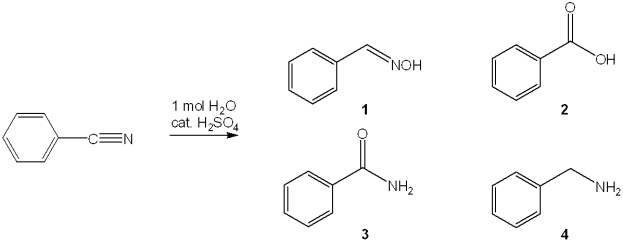
A)1
B)2
C)3
D)4

A)1
B)2
C)3
D)4

Unlock Deck
Unlock for access to all 112 flashcards in this deck.
Unlock Deck
k this deck
60
What is the major organic product obtained from the following reaction? 
A)1
B)2
C)3
D)4

A)1
B)2
C)3
D)4

Unlock Deck
Unlock for access to all 112 flashcards in this deck.
Unlock Deck
k this deck
61
Of the following substances, the first and last substance shown are not derivatives of carboxylic acids. 


Unlock Deck
Unlock for access to all 112 flashcards in this deck.
Unlock Deck
k this deck
62
What is the major organic product obtained from the following reaction? 
A)1
B)2
C)3
D)4

A)1
B)2
C)3
D)4

Unlock Deck
Unlock for access to all 112 flashcards in this deck.
Unlock Deck
k this deck
63
The following compound should be named as cyanopropane. 


Unlock Deck
Unlock for access to all 112 flashcards in this deck.
Unlock Deck
k this deck
64
Consider the following reaction.  The correct reactant to place in the box is PCl3.
The correct reactant to place in the box is PCl3.
 The correct reactant to place in the box is PCl3.
The correct reactant to place in the box is PCl3.
Unlock Deck
Unlock for access to all 112 flashcards in this deck.
Unlock Deck
k this deck
65
It is possible to directly convert an acid anhydride to an acid chloride.

Unlock Deck
Unlock for access to all 112 flashcards in this deck.
Unlock Deck
k this deck
66
Which combination(s) of organic bromide and carbonyl compound can be used to prepare the following product by reaction of the Grignard reagent derived from the alkyl bromide with the carbonyl compound? 
A)only 1
B)only 1 and 2
C)only 1, 2 and 3
D)1, 2, 3 and 4

A)only 1
B)only 1 and 2
C)only 1, 2 and 3
D)1, 2, 3 and 4

Unlock Deck
Unlock for access to all 112 flashcards in this deck.
Unlock Deck
k this deck
67
Consider the isotopically tagged substance below.  Saponification of this substance will produce the following products.
Saponification of this substance will produce the following products. 
 Saponification of this substance will produce the following products.
Saponification of this substance will produce the following products. 

Unlock Deck
Unlock for access to all 112 flashcards in this deck.
Unlock Deck
k this deck
68
The correct name of the following structure is phenyl benzoate. 


Unlock Deck
Unlock for access to all 112 flashcards in this deck.
Unlock Deck
k this deck
69
What is the major organic product obtained from the following reaction? 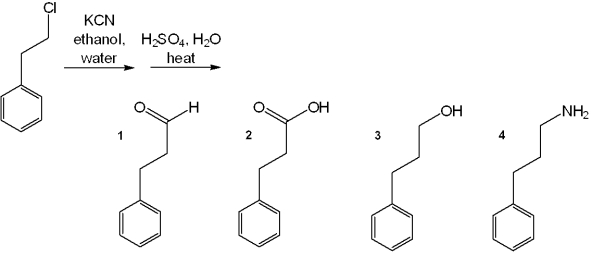
A)1
B)2
C)3
D)4

A)1
B)2
C)3
D)4

Unlock Deck
Unlock for access to all 112 flashcards in this deck.
Unlock Deck
k this deck
70
Which combination(s) of organic bromide and carbonyl compound can be used to prepare the following product by reaction of the Grignard reagent derived from the alkyl bromide with the carbonyl compound? 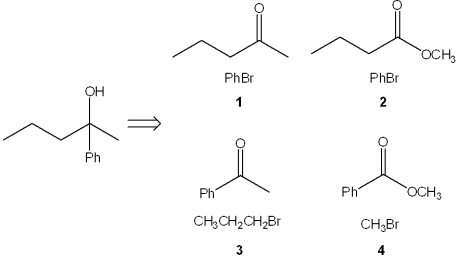
A)only 1
B)only 1 and 2
C)only 1 and 3
D)only 3 and 4

A)only 1
B)only 1 and 2
C)only 1 and 3
D)only 3 and 4

Unlock Deck
Unlock for access to all 112 flashcards in this deck.
Unlock Deck
k this deck
71
The product of the following reaction would be classified as a carboxylic acid. 


Unlock Deck
Unlock for access to all 112 flashcards in this deck.
Unlock Deck
k this deck
72
Consider the following reaction.  The structure of the tetrahedral intermediate is
The structure of the tetrahedral intermediate is 
 The structure of the tetrahedral intermediate is
The structure of the tetrahedral intermediate is 

Unlock Deck
Unlock for access to all 112 flashcards in this deck.
Unlock Deck
k this deck
73
What is the major organic product of the following sequence of reactions? 
A)1
B)2
C)3
D)4

A)1
B)2
C)3
D)4

Unlock Deck
Unlock for access to all 112 flashcards in this deck.
Unlock Deck
k this deck
74
Which combination(s) of alkyl bromide and ester can be used to prepare the following product by reaction of the Grignard reagent derived from the alkyl bromide with the ester? 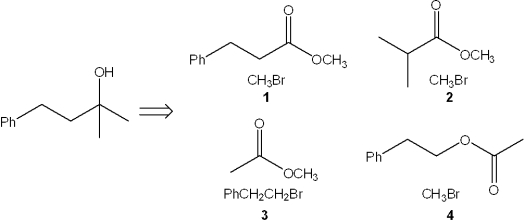
A)only 1
B)only 2
C)only 1 and 3
D)only 2 and 4

A)only 1
B)only 2
C)only 1 and 3
D)only 2 and 4

Unlock Deck
Unlock for access to all 112 flashcards in this deck.
Unlock Deck
k this deck
75
What is the major organic product of the following sequence of reactions? 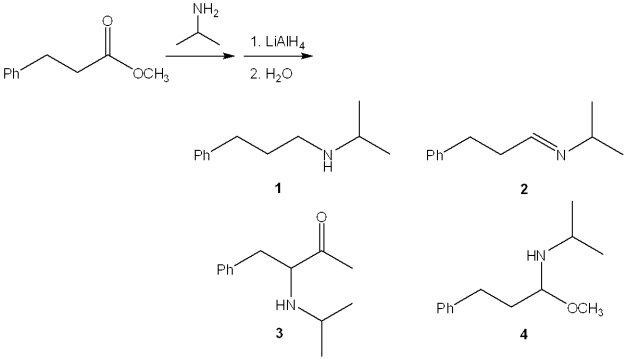
A)1
B)2
C)3
D)4

A)1
B)2
C)3
D)4

Unlock Deck
Unlock for access to all 112 flashcards in this deck.
Unlock Deck
k this deck
76
Consider the following reaction.  The reactant is a lactam.
The reactant is a lactam.
 The reactant is a lactam.
The reactant is a lactam.
Unlock Deck
Unlock for access to all 112 flashcards in this deck.
Unlock Deck
k this deck
77
Both amides and nitriles are acyl derivatives of carboxylic acids.

Unlock Deck
Unlock for access to all 112 flashcards in this deck.
Unlock Deck
k this deck
78
The correct name for the following compound is propyl cyclohexanoate. 


Unlock Deck
Unlock for access to all 112 flashcards in this deck.
Unlock Deck
k this deck
79
Which combination(s) of alkyl bromide and ester can be used to prepare the following product by reaction of the Grignard reagent derived from the alkyl bromide with the ester? 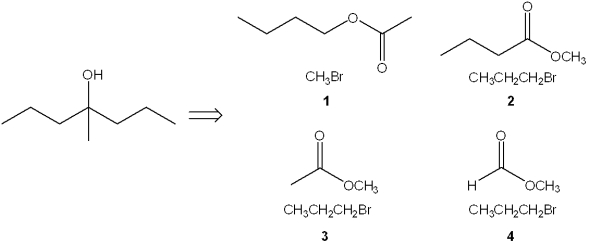
A)only 1
B)only 3
C)only 1 and 3
D)only 2 and 4

A)only 1
B)only 3
C)only 1 and 3
D)only 2 and 4

Unlock Deck
Unlock for access to all 112 flashcards in this deck.
Unlock Deck
k this deck
80
What is the major organic product of the following sequence of reactions? 
A)1
B)2
C)3
D)4

A)1
B)2
C)3
D)4

Unlock Deck
Unlock for access to all 112 flashcards in this deck.
Unlock Deck
k this deck


